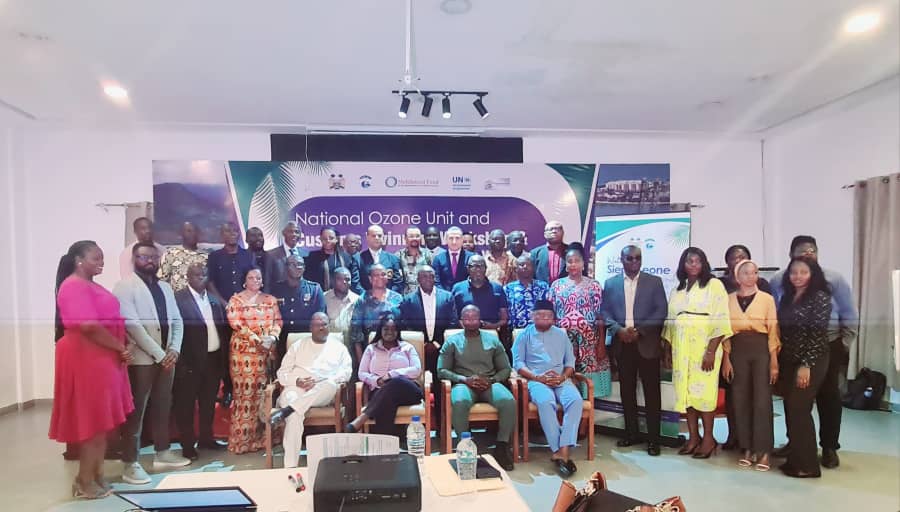By Ibrahim Joenal Sesay
Sierra Leone Environmental Protection Agency (EPA) and the United Nations Environment Programme (UNEP) on Friday ended a three-day training for boarder custom officers from parts of Africa, on controlling the importing and exporting of ozone depleting substances.
The training which brought together participants from Sierra Leone, Liberia, Nigeria, The Gambia, Ghana, Sudan and Egypt started on Wednesday 20th November, 2024 and ended on Friday 23rd Novembers, 2024 at Sierra Palms Hotel in Freetown.
The deliberations centered on ways and means in which participants can enforce compliance when it comes to the importing and exporting of ozone depleting substances across boarders in Africa.
In his address to the press, EPA Assistant Director for Research and Innovation, Bashiru Kargbo explained how Sierra Leone is a party to the Montreal Protocol which was signed in 1987, an extension of the Vienna Convection which talks about the protection of the ozone layer.
He pointed out that trad is important, as one that is needed to regulate the importing of substances that may deplete the ozone layer along various boarder crossing points in Africa. Kargbo urged countries to comply with the Montreal Protocol requirement.
He continues to say the Ozone Action – an arm of the Montreal Protocol helps to strengthen the capacities of Article 5 of the Montreal Protocol.
He further stated that as the workshop ended, participants are better placed to strengthen the relationship with custom officers, citing Sierra Leone National Revenue Authority (NRA) custom officers who would have to enforce regulations on chemicals that are hazardous to the ozone layer.
“By so doing, we protect our environment. The ozone layer protects you and me from skin cancer, eye cataract among others that can affect us,” he said.
Kargbo maintained that they have been providing trainings to custom officers, stressing that their responsibility is to ensure they give them the necessary capacity in the quest to clamp down on illegal substances destroying the ozone layer.
The Regional Coordinator Network for Ozone Action, Patrick Salifu in his remarks to the press said that there is an ozone unit in every country in Africa, and that the Ozone Action helps each country to implement programmes and activities that are related to the Montreal Protocol.
He went further to explain that their ambition is to ensure the phases out of ozone depleting substances, and warned custom officers to the wary of the importations of ozone depleting substances.
“If we need to be successful from controlling these substances from coming to our countries, we need to protect our boarders, Salifu emphasized.
Topics such as identification of ODS, handling seizures of illegally imported HFC/ODS, identification and Nomenclature of ODS and HFCs formed part of the three-day deliberations.

